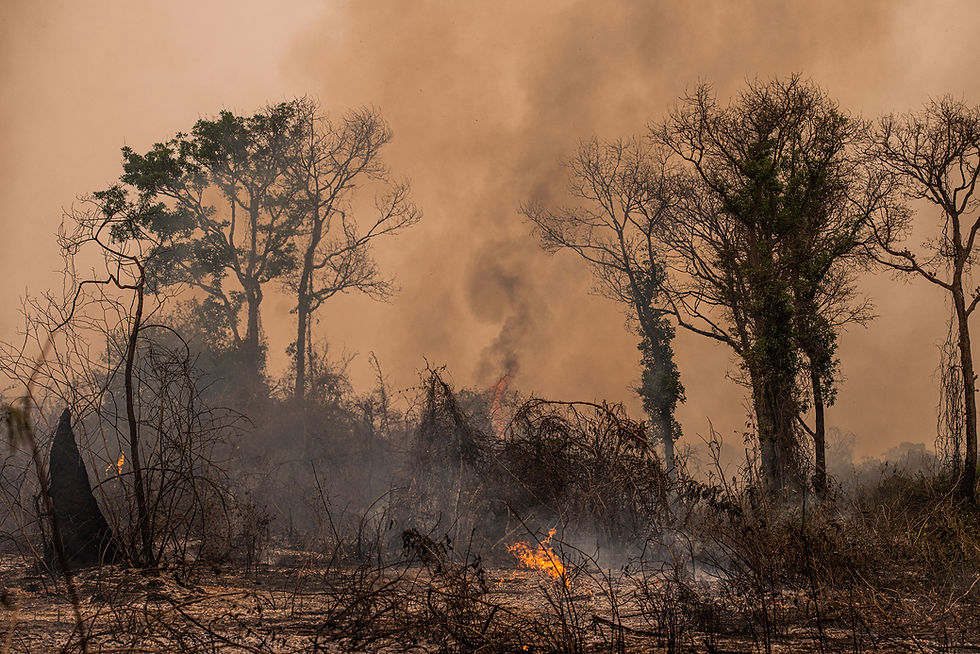Confronting Our Guilt: The Human Responsibility Behind Kerala’s Landslides
- ANEESH REDDY
- Aug 2, 2024
- 4 min read

The serene hills of Wayanad in Kerala have been struck by a catastrophe of unimaginable proportions. Over the past few days, massive landslides triggered by torrential rains have ravaged the district, leaving a trail of destruction in their wake. The death toll continues to rise, with local media reports indicating that over 275 lives have been lost, while the official count stands at 190. With nearly 200 people still missing, the fear is that this number will only increase.
The Disaster Unfolds
In the early hours of Tuesday, Wayanad was jolted awake by a series of landslides that tore through the district, destroying homes, roads, and bridges. The worst-hit areas include Mundakkai and Chooralmala, where entire communities have been buried under mud and debris. The once lush and peaceful landscapes of Wayanad now resemble a war zone, with the earth itself seeming to have turned against its inhabitants.
Local residents describe scenes of horror as the ground beneath them gave way, swallowing everything in its path. Families were torn apart, with many still searching for their loved ones. Heart-wrenching images of a father frantically searching for his missing daughter have become symbolic of the personal tragedies playing out in this disaster. The response to this disaster has been swift but fraught with challenges. Rescue operations are being carried out by a combination of local authorities, national disaster response teams, and the Indian Army. However, the treacherous terrain, destroyed infrastructure, and adverse weather conditions have made these efforts incredibly difficult. Chief Minister Pinarayi Vijayan has been at the forefront, coordinating the rescue missions and ensuring that all possible resources are being deployed. Despite the relentless efforts of over 1,300 personnel from various agencies, including the armed forces, the progress has been slow due to the sheer scale of the devastation.

In the midst of this chaos, the Kerala government has been working tirelessly to provide relief and support to those affected. More than 225 people have been injured, and over 9,328 have been relocated to 91 relief camps across the district. These camps are providing essential services such as food, shelter, and medical care to the displaced.
Minister K Rajan, who is coordinating the rescue efforts, emphasized the state’s commitment to rehabilitating the survivors and rebuilding their lives. Special priority is being given to the education of children affected by the disaster, ensuring that they can continue their studies despite the upheaval.
The loss of life in Wayanad is staggering. Among the dead are 27 children and 76 women, highlighting the vulnerability of these communities. The stories emerging from the affected areas are heart-breaking, with many families losing everything they hold dear.
One particularly poignant story is that of a group of tea-plantation workers in Chooralmala and Mundakkai, who have been the worst affected. These workers lived in estate lanes that were completely obliterated by the landslides. While rescue operations continue, the exact number of fatalities among these workers remains unclear.

In the face of such overwhelming tragedy, global support is crucial. ArforEarth, an international NGO dedicated to combating climate change, has stepped up to provide much-needed assistance. Through our initiative, Craft for Earth, we have been organizing art and craft workshops around the world, with all funds raised now being directed towards the Kerala relief fund.
This support is not just financial but also a testament to our commitment to stand with those affected by climate-induced disasters. We urge everyone to contribute in any way they can, whether through donations, volunteering, or simply spreading the word.

As we grapple with the aftermath of this disaster, it is essential to recognize our role in it. Human negligence towards the environment has directly contributed to the increased frequency and severity of such natural calamities. Our insatiable appetite for development, coupled with a blatant disregard for ecological balance, has pushed the planet to its brink.
The Wayanad landslides are not just a natural disaster; they are a stark reminder of the consequences of our actions. Climate change, driven by human activities, has exacerbated weather patterns, making such tragedies more likely and more devastating.
It is time for us to take responsibility and act decisively. We can no longer afford to ignore the signs of climate change. Each one of us has a role to play in mitigating its impact and ensuring a sustainable future for generations to come.
Support the relief efforts in Wayanad by donating to organizations like ArforEarth, who are on the ground making a difference. Educate yourself and others about the importance of environmental conservation. Reduce your carbon footprint by making conscious choices in your daily life. Every action counts.
The disaster in Wayanad is a sobering reminder of the fragility of our environment and the urgent need for collective action. As we mourn the loss of lives and the destruction of communities, let us also commit to making a positive change. Together, we can rebuild, restore, and ensure that such tragedies become a thing of the past.




Comments